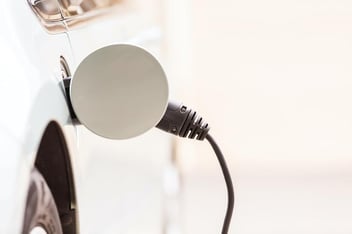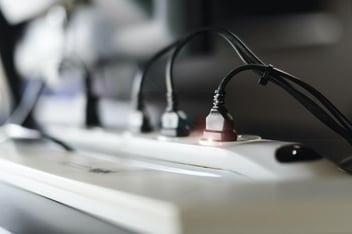I’m looking to revamp my outdoor living space. What do I need to be aware of when it comes to using electrical products outdoors?
Before purchasing any electrical products, make sure they are certified for use in Canada. All electrical products should have a mark of approval from a Canadian certification agency such as CSA or ULC. This certification should be located both on the outside of the packaging and stamped somewhere on the product. More information regarding acceptable certification marks can be found in our information bulletin.
You also need to ensure the product is suitable for outdoor use. Electrical products with a green label should be used outside. Red labels indicate the product is for indoor use only.
How can I maintain my outdoor lights to make sure they’re safe?
When hanging lights, avoid stapling or nailing cords as this can puncture the cord. Instead, use plastic clips made specifically for this purpose.
Don’t leave your lights up year-round if they’re exposed to the elements, as they will deteriorate faster, which can lead to unsafe conditions. Replace any cords that have frayed or broken and replace any burned out lights. Never run cords under rugs where people will walk over them, or through doorways or windows where they may become pinched (pinched wires can cause a fire).

Are extension cords OK to use to power outdoor lighting and equipment?
Indoor and outdoor extension cords are rated differently, so choose the right cord for the right location. Also, make sure cords can handle the amperage indicated on your electrical devices, and avoid multi-outlet adaptor connections which can overload your outlet.
Is a permit required to install a hot tub if a licensed electrician is performing the work?
Yes, this is regulated work so a permit is required even if an electrician is performing the work. Licensed contractors are required to obtain permits prior to starting regulated work. As a homeowner, you should ask to see a copy of the permit before you allow work to start. If work is done without the required permits, Technical Safety BC may take compliance & enforcement action against the contractor.




